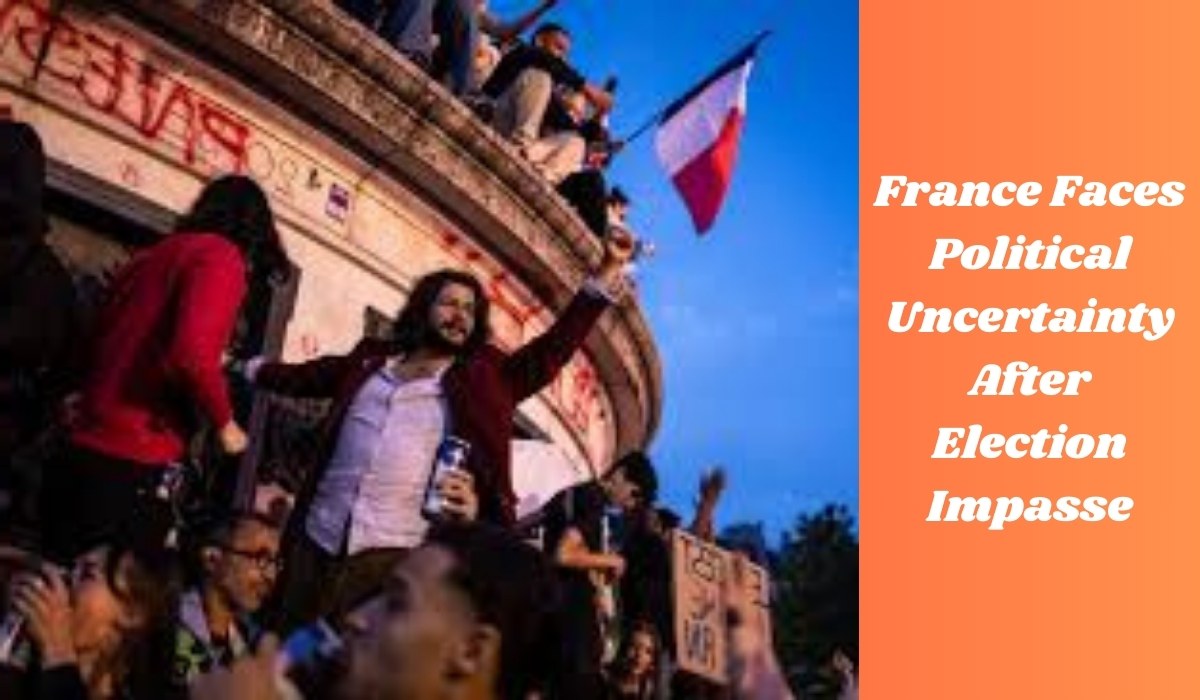France Faces Political Uncertainty After Election Impasse – 2024

In the aftermath of the recent French elections, the political landscape is left in a state of uncertainty as no single party has managed to secure a majority. This situation, while not entirely unprecedented, presents unique challenges and opportunities for the future of French politics. Let’s delve into the intricacies of the election results and explore the potential paths forward.
Understanding the Election Results
The election results revealed a fragmented political environment. The leading parties, while significant in their own right, failed to capture the absolute majority required to form a stable government. This outcome has led to a hung parliament, where coalition-building and strategic alliances will play a crucial role in shaping the future governance of France.
Major Parties and Their Standings
The major parties in contention included the centrist La République En Marche! (LREM), the conservative Les Républicains (LR), the far-right National Rally (RN), and the left-wing La France Insoumise (LFI). Despite their strong campaigns and considerable voter bases, none could surpass the 50% threshold needed for a clear majority.
La République En Marche! (LREM): President Emmanuel Macron’s party, LREM, garnered a significant portion of the votes but fell short of a majority. This result necessitates negotiations and potential coalitions with other parties to sustain governance.
Les Républicains (LR): The conservative party maintained its position as a formidable force, yet it too did not achieve a majority, necessitating strategic partnerships.
National Rally (RN): The far-right party, led by Marine Le Pen, made substantial gains but still lacks the numbers to govern alone.
La France Insoumise (LFI): The left-wing party led by Jean-Luc Mélenchon also increased its vote share but remains far from a majority.
The Implications of a Hung Parliament
A hung parliament, where no single party has an outright majority, leads to a more complex and potentially unstable political environment. The lack of a clear majority means that legislation can only be passed with the consensus of multiple parties, requiring negotiation and compromise.
Coalition Building and Strategic Alliances
In this scenario, coalition-building becomes essential. Parties must engage in discussions to form alliances that can collectively reach a majority. These coalitions can be formal, with shared policy platforms and agreed-upon leadership roles, or informal, based on issue-by-issue cooperation.
- Potential Coalitions: Given the ideological differences between the major parties, forming a coalition that can effectively govern will be challenging. LREM might look to align with centrist or moderate right-wing parties, while the left-wing parties may attempt to form a progressive alliance.
- Challenges and Opportunities: While coalitions can bring together diverse perspectives and create more balanced governance, they can also lead to instability and frequent policy clashes. The ability of the parties to find common ground and work collaboratively will be crucial in determining the effectiveness of the next government.
Impact on Domestic and International Policies
The outcome of these elections will have significant implications for both domestic and international policies. The direction that the new government takes will be closely watched by both the French public and international stakeholders.
Domestic Policies
- Economic Reforms: The new government will need to address economic challenges, including unemployment, public debt, and social inequality. The composition of the coalition will influence the approach to these issues, whether it be through austerity measures, social spending, or economic liberalization.
- Social Issues: Policies on healthcare, education, and social welfare will also be impacted. The stance of the coalition on these issues will determine the extent and nature of reforms.
- Environmental Policies: With climate change being a critical concern, the government’s approach to environmental policies will be crucial. Parties with strong green agendas may push for more aggressive action on sustainability and renewable energy.
International Relations
- European Union: France’s relationship with the EU will be a key area of focus. The new government’s stance on EU integration, economic policies, and foreign relations will shape France’s role within the Union.
- Global Diplomacy: France’s foreign policy, including its relations with key global players like the United States, China, and Russia, will be influenced by the new coalition. Issues such as trade, defense, and international cooperation will be pivotal.
The Road Ahead: Possible Scenarios
Several scenarios could unfold in the coming months as parties negotiate and attempt to form a stable government. Each scenario carries its own set of challenges and opportunities.
Scenario 1: A Centrist Coalition
LREM could form a coalition with centrist and moderate right-wing parties. This coalition would likely pursue a balanced approach to economic and social policies, aiming to appeal to a broad spectrum of the electorate.
Scenario 2: A Left-Wing Alliance
Left-wing parties, including LFI and other progressive factions, could form a coalition. This government would likely focus on social spending, environmental reforms, and progressive taxation policies.
Scenario 3: A Minority Government
If coalition negotiations fail, a minority government could be formed. This scenario would see the leading party govern with limited support, relying on ad hoc agreements to pass legislation. This could lead to a more volatile and unpredictable political environment.
Scenario 4: New Elections
In the event of a prolonged deadlock, new elections might be called. This scenario would reset the political landscape, giving parties another chance to secure a majority. However, it also carries the risk of continued instability and voter fatigue.
Conclusion: Navigating Uncertainty
The recent French elections have ushered in a period of uncertainty and potential change. As parties navigate the complex process of coalition-building, the future of French politics remains in flux. The ability of political leaders to negotiate, compromise, and find common ground will be crucial in shaping the next chapter of governance in France.
The outcome of these negotiations will not only impact France domestically but also influence its role on the global stage. As the world watches closely, the decisions made in the coming weeks and months will be pivotal in determining the direction of French politics for years to come.



4 thoughts on “France Faces Political Uncertainty After Election Impasse – 2024”